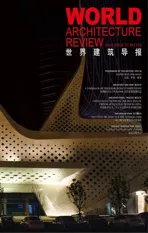Kaap Skil海事博物馆
2016-11-29荷兰特克塞尔
Kaap Skil海事博物馆
荷兰特克塞尔
业主:奥德斯希尔Maritiem & Jutters德博物馆
设计:2007-2009年
施工:2010-2011年
项目管理:ABC管理公司
室内设计:伦敦HBA画廊
结构工程:乌得勒支Pieters Bouwtechniek
承建商:Bouwcombinatie De Geus & Duin Bouwbedrijf,Broek op Langedijk
面积: 1 200平方米
获奖:2012年荷兰日光奖
Client: Maritiem & Jutters Museum, Oudeschild
Design: 2007-2009
Construction: 2010-2011
Project management: ABC Management Groep, Assen
Interior design: The Gallery HBA, London, United Kingdom
Structural engineer: Pieters Bouwtechniek, Utrecht
Contractor: Bouwcombinatie De Geus & Duin Bouwbedrijf,Broek op Langedijk
Area: 1 200 m²
Award: Dutch Daylight Award 2012
旅游景点
特塞尔岛位于瓦登海内,是荷兰所辖瓦登群岛中最大的岛屿。每年有一万左右的游客光顾该岛,目前只能通过飞机、轮船或渡轮抵达。然而,很少有人了解特克塞尔辉煌的历史及其与荷兰东印度公司的关系。早在17和18世纪,东印度公司的船队以特克塞尔锚地为出发点前往远东探险。船队在这里等待顺风起锚扬帆,驶往“东方”。在等待时,船队会在这里维护,进行小修小补,补给食物和水,水手们可以最后再见一次他们的家人。许多画家来到“Reede van Texel”(特克塞尔的近海锚地),在画布上描绘荷兰共和国的舰队。从建在奥德斯希尔德小村庄的入口处进入博物馆,游客被带回荷兰的黄金时代。这里展示的是Reede van Texel一个18米长、4米深的模型,以详尽的细节展示十几艘锚定在瓦登岛近海的船只壮观的画面。
典型的山形屋顶
博物馆的设计有四个连接巧妙的山形屋顶,与周围的屋顶形成的建筑节奏相映成趣,从海上看,就像高出堤坝的波浪。
“大海会带走一切,也会带来一切”——这是特克塞尔妇孺皆知的谚语。几百年来,他们有幸能够用取自搁浅船只或船只残骸的浮木建造房屋和谷仓。Kaap Skil的木制外立面就是这一回收利用传统的最好实例。垂直的木条是来自北荷兰运河的硬木锯成的薄板,在这里被赋予了新的生命,就像博物馆里的收藏品一样。坐在博物馆咖啡厅里的游客可以透过木板前面的玻璃幕墙看到博物馆的露台和荷兰北部享有盛名的蓝色天空。在建筑物里面,阳光透过这些木板照进来,形成了一个光线与阴影构成的线性图案,光线与阴影创造了一个和谐的氛围。
日光与人工照明
博物馆的入口和咖啡厅在地下室的Reede van Texel世界和一楼水下考古展厅之间形成一道自然屏障。这两个不同空间之间的对比因为不同的光线和空间感而更加强烈。在地下室吸引游客的是投影和动画,在这里营造出充满神秘感的氛围。一楼,荷兰北部的天空照耀着展品。用结实的钢结构和玻璃制造的活动展柜创造出透明的效果,里面的展品似乎是在空中飘荡。在高高的山形屋顶下,游客可以随意参观数目可观的收藏品。在游览博物馆各处时,还可以远眺奥德斯希尔德小村庄。
Tourist attraction
The island of Texel is situated in the Waddenzee and is the largest of the Dutch Wadden Islands. Every year a million or so tourists visit the island, which is only accessible by plane, boat or ferry. Few however will be familiar with the glorious history of Texel and its links with the Dutch East India Company. In the seventeenth and eighteenth centuries the Company's fleet used the anchorage of Texel as its departure point for expeditions to the Far East. The ships waited there for a favourable wind before weighing anchor and sailing off to the ‘Orient'. While they waited, maintenance work and small repairs were carried out, victuals and water were brought on board and family could see their loved ones one last time. Many painters visited the ‘Reede van Texel' (the offshore anchorage of Texel) to depict on canvas the fleet of the Dutch Republic. In the new entrance building of the maritime and beachcombers museum, Kaap Skil, in the hamlet of Oudeschild, the public is taken back in time to the Dutch Golden Age. The showpiece of the museum is an eighteen-metre long, four-metre deep model of the Reede van Texel, displaying in great detail the impressive spectacle of the dozens of ships anchored off the coast of the Wadden Island.
Typical gable roofs
The museum is designed with four playfully linked gabled roofs which are a play on the rhythm of the surrounding roof tops which, seen from the sea, resemble waves rising out above the dyke.
‘The sea takes away and the sea provides' - this is a saying that the people of Texel know so well. For hundreds of years they have made grateful use of driftwood from stranded ships or wrecks to build their houses and barns. The wooden façade of Kaap Skil is a good example of this time-hallowed tradition of recycling. The vertical wooden boards are made of sawn hardwood sheet-piling from the North Holland Canal and have been given a new life just like the objects in the museum collection. From within, the glass facade in front of the wooden boards allows an inviting view of the outdoor museum terrain and of the famous North Holland skies to visitors of the museum café. Inside the building the boards cast a linear pattern of daylight and shadow creating an atmosphere infused with light and shelter.
Daylight and artificial light
The entrance and the museum café form a natural frontier between the world of the Reede van Texel in the basement and that of the underwater archaeology on the first floor. The contrast between the two worlds is reinforced by the different experiences of light and space. In the basement visitors are drawn around the exhibition by projections and animations, creating an intimate space that harbours a sense of mystery. On the first floor the North Holland sky floods the objects on display with light. The movable showcases of robust steel frames and glass create a transparent effect so that the objects in the collection seem to float within the space. Under the high gabled roofs the visitor gets a generous sense of being able to survey the sizable collection, the museum grounds and the village of Oudeschild at a glance.
Kaap Skil, Maritime and Beachcombers Museum Texel, the Netherlands
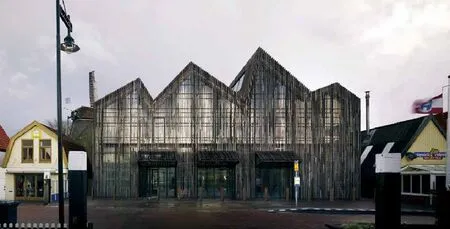
photo: © Christian Richters
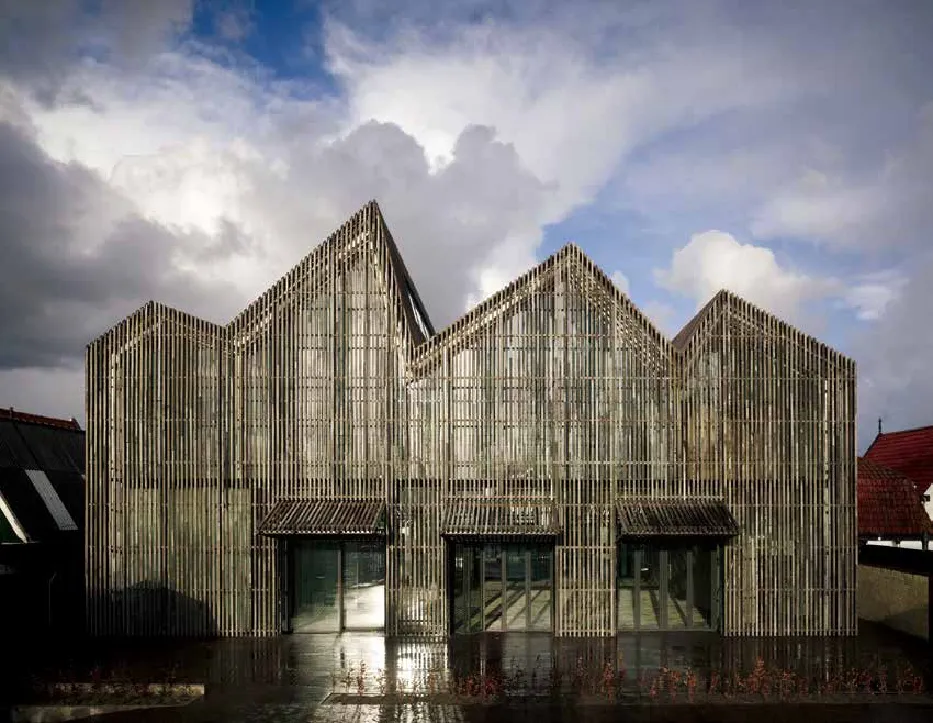
photo: © Christian Richters
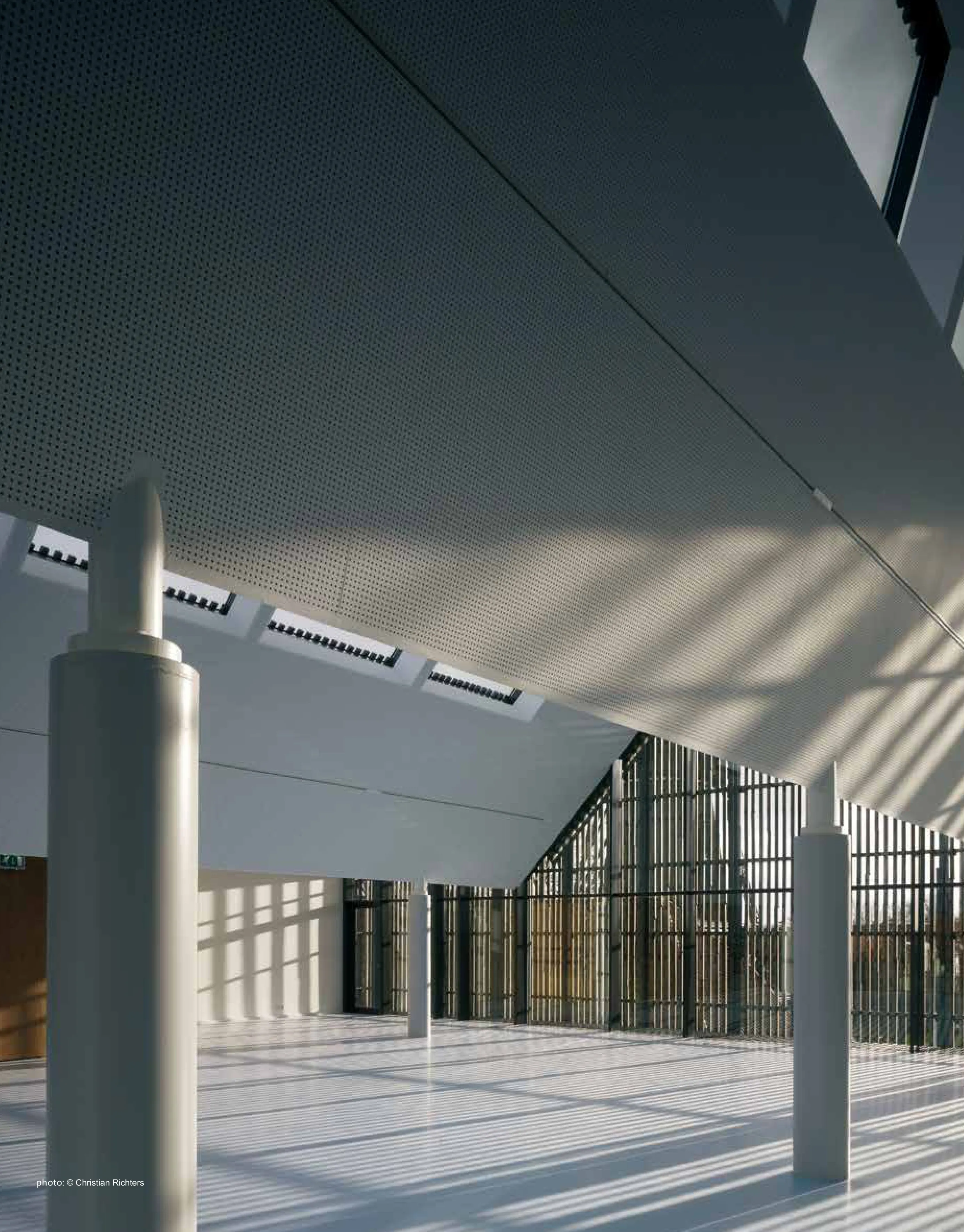

photo: © Mecanoo
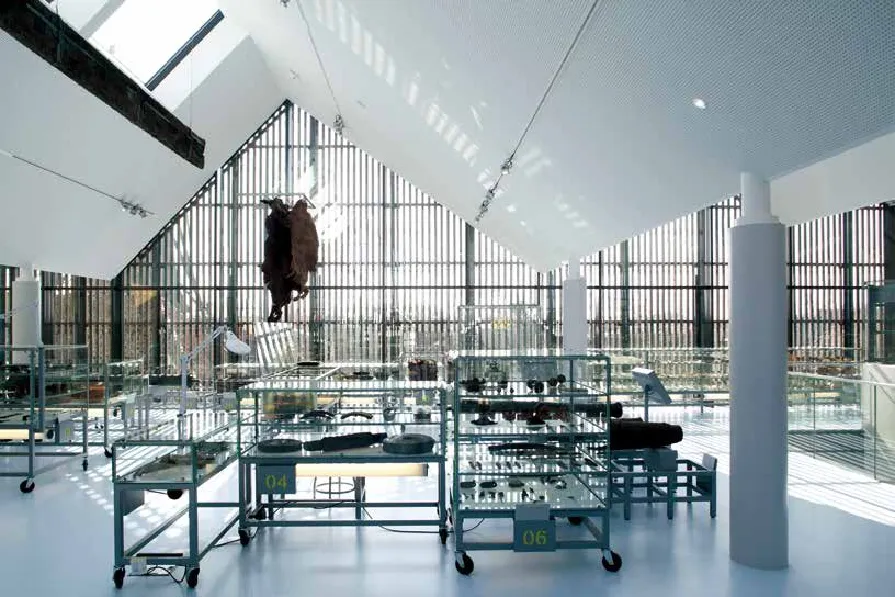
photo: © Mecanoo

photo: © Christian Richters
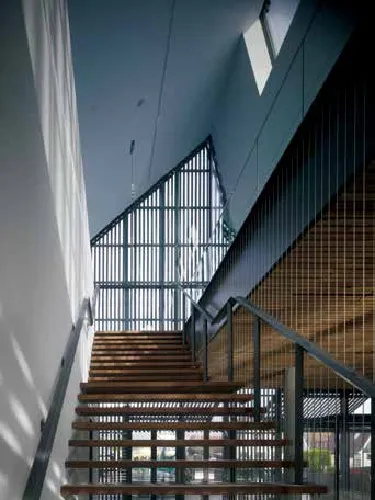
photo: © Christian Richters
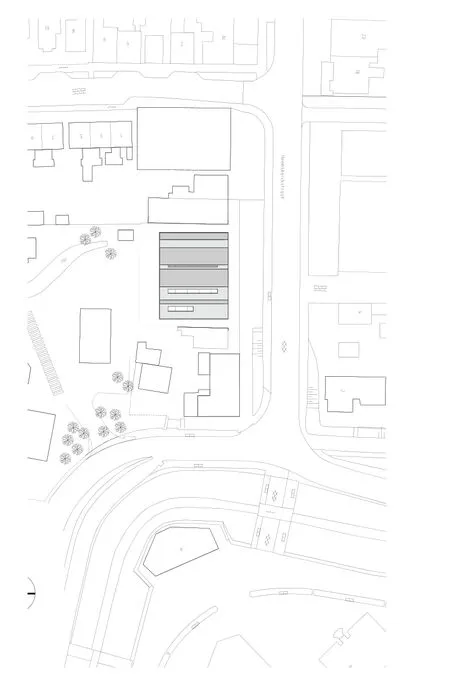
总图 situation
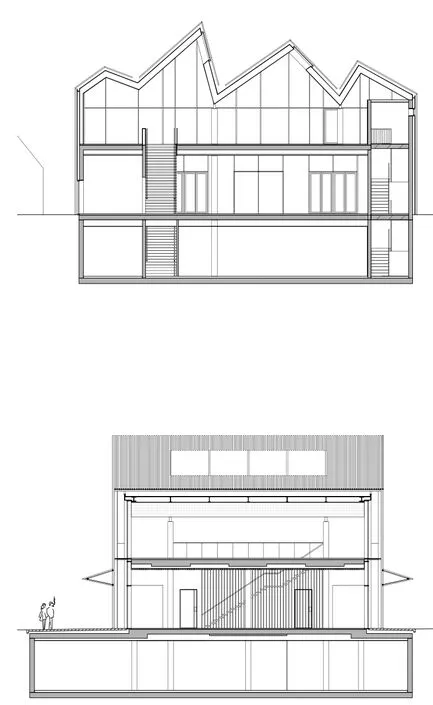
剖面图 sections

photo: © Christian Richters
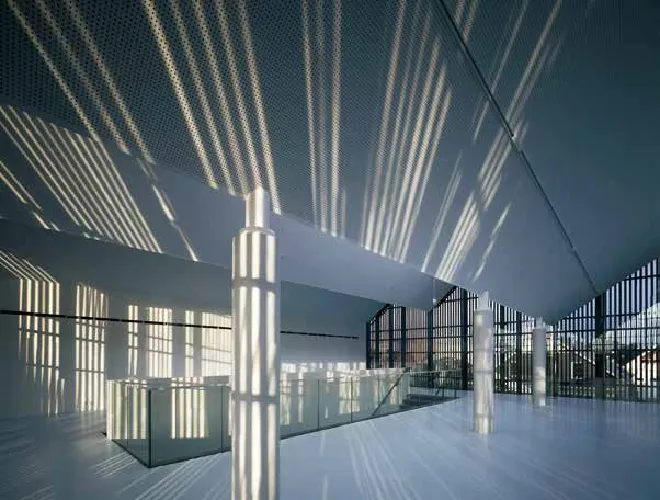
photo: © Christian Richters
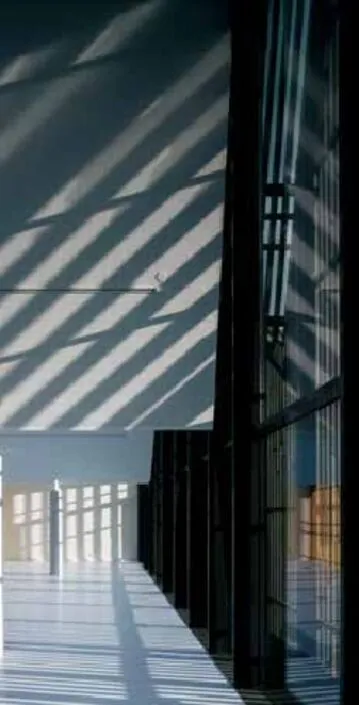
photo: © Christian Richters
